Dr. Thacker is currently on research leave for the 2025-2026 academic year.
Dr. Paul Thacker, an anthropological archaeologist, researches the human past through his ongoing fieldwork in the United States and western Europe. He teaches courses in prehistory and archaeological methods in addition to directing the Archaeology Laboratory and summer archaeological field programs at sites in Portugal and North Carolina. Dr. Thacker emphasizes the interdisciplinary nature of archaeology with interests in areas including geoarchaeology, spatial analysis, and the anthropology of hunter-gatherers. His current projects are geographically and chronologically diverse, ranging from the social organization of Upper Paleolithic hunter-gatherers in Portugal during the last ice age to the industrial landscapes of the Louisiana wetlands.
Current Academic Appointments:
Associate Professor, Department of Anthropology
Director, Wake Forest University Archaeology Laboratory
NAGPRA Coordinator, Department of Anthropology
Director, Wake Forest University Summer Study Abroad Program in Portugal
Education:
NSF-funded Post-Doctoral Fellowship in Geoarchaeology, (Department of Geology and Geophysics)
Louisiana State University, Baton Rouge, Louisiana
Ph.D. and M.A. (Anthropology) Southern Methodist University, Dallas, Texas.
B.S. (Anthropology) Tulane University, New Orleans, Louisiana.
Research Interests:
geoarchaeology; lithic analysis; Paleolithic archaeology; European prehistory; prehistory of eastern North America; anthropology of hunter-gatherers; spatial analysis and landscape archaeology; paleoanthropology; community-based research in archaeology.
Fellowships and Awards:
Z. Smith Reynolds Faculty Fellow. Wake Forest University.
Reid-Doyle Prize for Excellence in Teaching, Wake Forest University.
Wake Forest University Award for Excellence in Academic Advising.
ODK National Leadership Honor Society, selected by students for faculty induction.
Faculty Appreciation awards from numerous student groups including Mortar Board, Panhellenic Council, Interfraternity Council, and over a dozen men’s and women’s athletic teams.
Certifications and Memberships:
Register of Professional Archaeologists
Geological Society of America
Union Internationale des Sciences Préhistoriques et Protohistoriques
Society for American Archaeology
American Anthropological Association (Archaeology Division and Anthropology & Environment Society)
Southeastern Archaeological Conference
Commission Member: Pyroarchaeology Commission of the Union Internationale des Sciences Préhistoriques et Protohistoriques
Frequently Offered Courses
ANT 112: Introduction to Archaeology
This Social Science Divisional course explores the method and theory of scientific archaeology as a subfield of anthropology. Basic principles of archaeological fieldwork, including remote sensing, site discovery, and excavation will complement an introduction to important laboratory techniques for understanding past human lifeways. Case studies of significant archaeological sites will demonstrate how archaeologists build knowledge about the past. We will examine fundamental issues in prehistory such as the origins of human cultural behavior, the peopling of the planet, the origins of domestication in diverse prehistoric contexts, and the rise of complex stratified societies. Visual presentations, course readings, visits to the Wake Forest Museum of Anthropology and Archaeology Laboratory, and short video clips will illustrate the contemporary social relevance of understanding our prehistoric past.
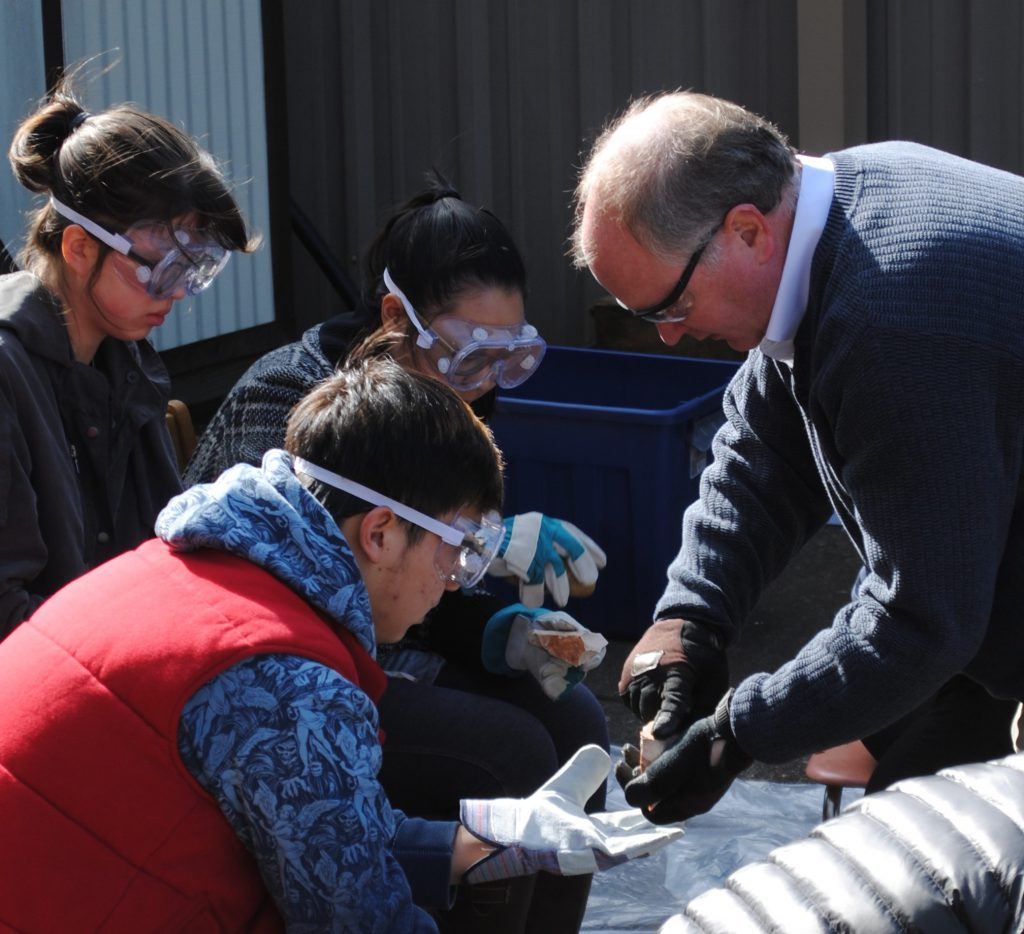
ANT 339: Culture and Nature: Environmental Anthropology
Exploration of humanity’s “place” in the cosmos, focusing on different worldviews of nature and culture. Case studies from anthropology, archaeology, and environmental science illustrate human response and contribution to environmental change, “natural” disasters, and resource scarcity. Past and present cultural conceptions of environment technology, resources, and ownership provide context for understanding the complex adaptations and exploitations that characterize our social world. Considers alternative solutions and assesses competing ideologies and practices within the contemporary global system.
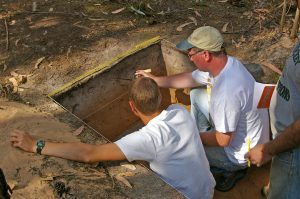
ANT 370: Origins to Empires: the Archaeology of Africa and Eurasia
This survey course explores prehistoric cultures from the stone age until the recent past throughout Africa, Asia, and Europe. Major topics include the origins of human cultural behavior, the peopling of the planet, the diverse origins of domestication in different environments, the rise of cultural complexity and stratified societies, and the historical development of numerous world civilizations. The cultural evolution of state societies will be assessed within the important context of past environments and climate change.
Specific case studies and important site discoveries will demonstrate how archaeologists build knowledge about the past and evaluate anthropological explanations from political economy, ideational/cognitive models, inequality-conflict frameworks, and empathetic social theory. In addition to classroom presentations, online visual multimedia, classroom artifact experiences, and video documentaries will illustrate the contemporary relevance of anthropological archaeology.
ANT 315: Artifact Analysis and Laboratory Methods in Archaeology
Many of the most significant archaeological discoveries occur in the laboratory rather than at a remote field excavation. This class is an introduction to the techniques that archaeologists employ to understand past human behavior from recovered artifacts and ecofacts. Readings, lectures, and hands-on training introduce methods for determining the composition, age, manufacture, and use of different prehistoric and historic artifact types. Class exercises demonstrate methods for reconstructing past natural environments from geological or ecofact samples. Standard methods of data display including computer-based illustration and photography will be discussed in the context of preparing archaeological reports and constructing accessible collection catalogs. Guest lectures by specialists will address artifact/ecofact conservation and innovative research directions. The interplay of anthropological theory and archaeological method will be evident as students design and prepare a research project tailored to their specific archaeological interests.
ANT 381,382: Archaeological Field Methods (summer field schools; NC and Portugal)
FYS 100: First Year Seminar. Pseudoscience, Epistemology, and the Science of the Human Past.
The human past often is portrayed as full of mystery, with Moundbuilders, mummy curses, lost arks and refugees from Atlantis eluding discovery. This course explores these archaeological problems while critically examining how scientific archaeologists build knowledge about the past. Case studies including the peopling of the Americas, prehistoric cannibals, and the African civilization of Great Zimbabwe provide students with an opportunity to evaluate archaeological evidence and arguments of interpretation. Discussions about archaeological ethics demonstrate the social context of scientific archaeology and the politics of the past in the present.
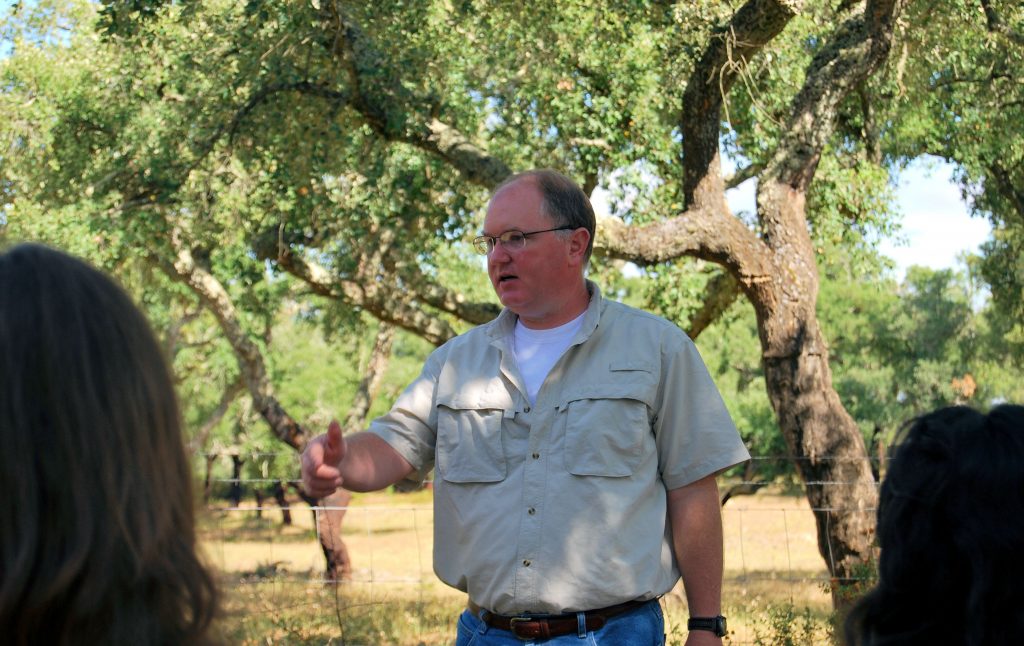
Select highlights spanning my scholarly publications and academic presentations are organized below by research focus:
Prehistoric Stone Tool Technology and Raw Material Economy
2018 Emic Knapping Perspectives and the Analytical Concept of Raw Material Similarity: Building a Contextualized Theory of Lithic Raw Material Selection. Presented at Society for America Archaeology Annual Meeting in Washington DC.
Thacker, P. (2006) Local raw material exploitation and prehistoric hunter-gatherer mobility. In Archaeology and Ethnoarchaeology of Mobility, edited by Frédéric Sellet, Russell D. Greaves, and Pei-Lin Yu. pp 240-261. University Press of Florida; Gainesville.
Thacker, P. (2002) Residential mobility and lithic economizing behavior: explanatory models of technological change in the Portuguese Upper Paleolithic. In Lithic Raw Material Economies in Late Glacial and Early Postglacial Europe, edited by L. Fisher and B. Eriksen. pp. 147-159. BAR, Oxford.
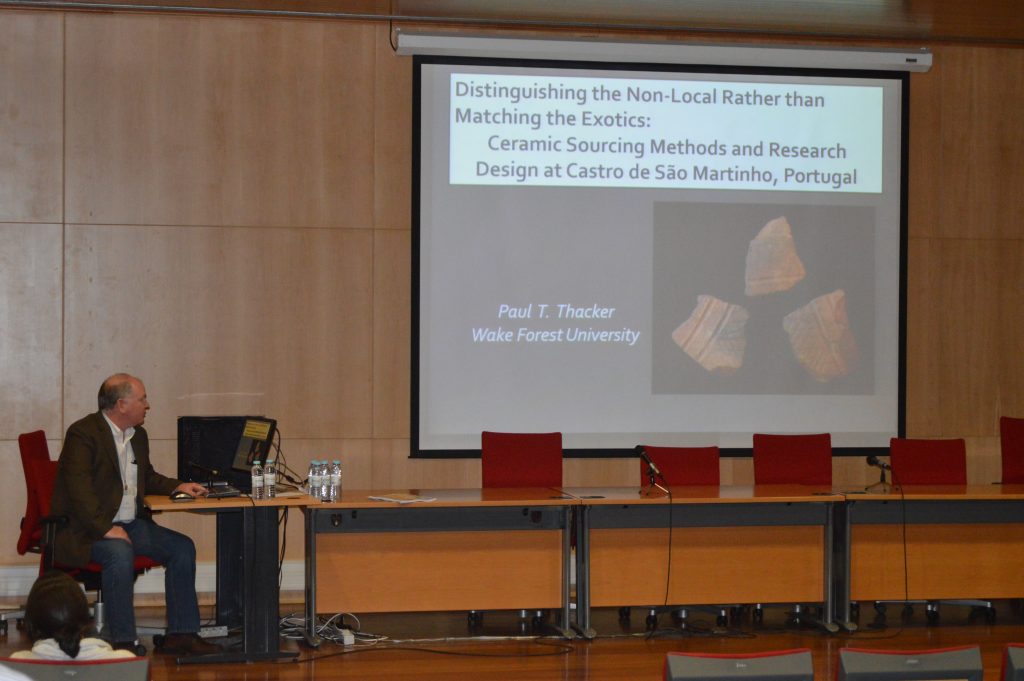
Hunter-Gatherer Settlement Systems and Regional Analysis in Archaeology
2018 Integrating the Ephemeral and the Regional: Critical Insights from Short Duration Archaeological Sites and Palimpsests in central Portugal. Invited paper for Symposium: Short-term human occupations and mobility patterns; 18th World Congress of the Union Internationale des Sciences Préhistoriques et Protohistoriques held at the Sorbonne in Paris, France.
Thacker, P. (2000) The relevance of regional analysis for Upper Paleolithic archaeology: a case study from Portugal. In Regional Approaches to Adaptation in Late Pleistocene Western Europe, edited by H. Price and G. Peterkin, pp. 25-45. BAR, Oxford.
Jackson, L. and P. Thacker editors. (1997) Caribou / Reindeer Hunters of the Northern Hemisphere. Worldwide Archaeology Series. Avebury Press, Hampshire, Great Britain.
Middle and Upper Paleolithic Europe (with emphasis on Portugal)
2018 Pyrotechnology, Specialized Knowledge, and Feature Architecture at the Upper Paleolithic site of Vale de Óbidos, Portugal. Invited paper for Symposium: Fire as an artifact: Advances in the study of Paleolithic combustion features; 18th World Congress of the Union Internationale des Sciences Préhistoriques et Protohistoriques held at the Sorbonne in Paris, France.
2014 Chronology of the Earliest Upper Paleolithic in Central Portugal: Olival Grande and resolving the open-air “Aurignacian.” Presented at 17th World Congress of the Union Internationale des Sciences Préhistoriques et Protohistoriques held at Burgos, Spain.
Hays, M. and P. Thacker editors. (2001) Questioning the Answers: Resolving Fundamental Problems of the Early Upper Paleolithic. BAR International Series 1005. Archaeopress, Oxford, Great Britain.
Thacker, P. (2001) The Aurignacian campsite at Chainça and its relevance for the earliest Upper Paleolithic settlement of the Rio Maior vicinity. Revista Portuguesa de Arqueologia 4:5-15.
Geophysical Survey Techniques in Archaeology
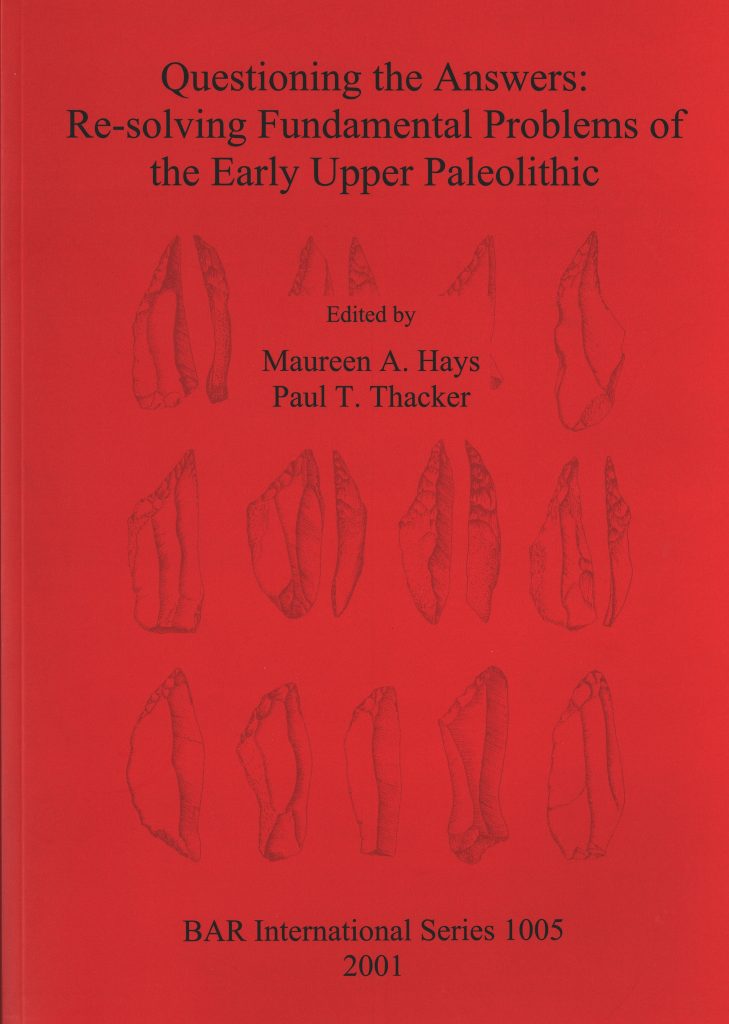
2015 Discerning Prehistoric Activity Areas in Floodplain Settings: The Mineralogy Behind the Magnetics. Presented at the Geological Society of America Annual Meeting in Baltimore, Maryland.
Thacker, P. T., and R. Adams (2009) Archaeological Identification and Mapping of the Unmarked and Abandoned Blake/Slater Family Cemetery, McGregor Road, Winston-Salem, North Carolina. Wake Forest University Archaeology Laboratories Technical Report Series.
Thacker, P., B. Ellwood, and C. Pereira. (2002) Detecting Paleolithic activity areas through electrical resistivity survey: an assessment from Vale de Óbidos, Portugal. Journal of Archaeological Science 29: 563-570.
Archaeological Applications of Geochemical Laboratory Methods
2017 The Rio Maior-Azinheira Ridge Chert Raw Material Online Database.
2016 A multi-method approach for characterizing chert geochemical variability at Azinheira-Rio Maior, Portugal. Invited presentation at Raw Material Exploitation in Prehistory: Sourcing, Processing and Distribution conference (University of Algarve and Consejo Superior de Investigaciones Científicas -Barcelona) held at Faro, Portugal.
2016 Distinguishing the Non-Local Rather than Matching the Exotics: Ceramic Sourcing Methods and Research Design at Castro de São Martinho, Portugal Invited presentation at Raw Material Exploitation in Prehistory: Sourcing, Processing and Distribution conference (University of Algarve and Consejo Superior de Investigaciones Científicas -Barcelona) held at Faro, Portugal.
2016 Behavior Beyond the Village: Embedded Clay Procurement and Changing Late Woodland Land Use in the Yadkin Valley Presented at the Southeastern Archaeological Conference Annual Meeting at Athens, Georgia.
Magnetic Susceptibility of Sediments and Artifacts
2014 The Mineralogy behind the Magnetics: Sedimentology and Site Formation Processes in North Carolina. Presented at the Southeastern Archaeological Conference Annual Meeting at Greenville, South Carolina
Ellwood, B., F. Harrold, S. Benoist, P. Thacker, M. Otte, D. Bonjean, G. Long, A. Shahin, R. Hermann, and F. Grandjean (2004) Magnetic susceptibility applied as an age-depth-climate relative dating technique using sediments from Scladina Cave, a Late Pleistocene cave site in Belgium. Journal of Archaeological Science 31: 283-293.
Thacker, P. and B. Ellwood. (2002) The magnetic susceptibility of cherts: archaeological and geochemical implications of source variation. Geoarchaeology 17(5): 465-482.
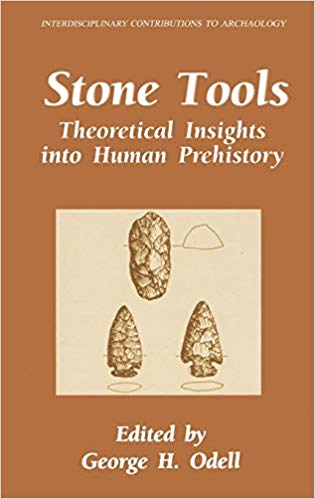
Prehistoric Native American Societies in North Carolina
2018 Practicing Pottery: Method and Theory in Southeastern Ceramic Analysis. Organizer of symposium including 19 presenters. Delivered paper: Practicing Pottery: Bridging Method and Theory in Ceramic Analysis coauthored by WFU students Patrick Diaz, and Lila Franco. Southeastern Archaeological Conference Annual Meeting at Augusta, Georgia.
2016 Raw Material Provisioning and Tool Rejuvenation Practices: Environmental Change and Technological Tensions in the Middle Archaic of the North Carolina Piedmont Invited presentation for symposium: Global Perspectives on the Impact of Drastic Environmental Changes on Hunter-Gatherer Technologies, organized by Joao Cascalheira and Nuno Bicho. Society for America Archaeology Annual Meeting in Orlando, Florida.
Thacker, P., J. Hardison, and C. Conklin (2012) Provisioning Middle Archaic Places: Changing Technological Organization and Raw Material Economy in the Uwharrie Mountains. In Contemporary Lithic Analysis in the Southeast: Problems, Solutions, and Interpretations, edited by Philip J. Carr, Andrew P. Bradbury, and Sarah E. Price, pp. 96-112.The University of Alabama Press; Tuscaloosa.
Community-Based Research and Public Archaeology
2014 An Archaeology of Everyday Resistance: Regional Approaches to the Potes Mouros. Presented at the Annual Meeting of the American Anthropological Association, Washington, D.C.
2013 Community narratives and political action against Section 106: Understanding barriers to post-Katrina cultural resource preservation in New Orleans. Presented at the Annual Meeting of the American Anthropological Association, Chicago, Illinois.
Thacker, P. (2009) Archaeological research within community service learning projects: engagement, social action, and learning from Happy Hill In Archaeology and Community Service Learning, edited by M. Nassaney and M-A Levine, pp. 153-167. University Press of Florida; Gainesville.
2009 Symposium Organizer: Practicing Public Archaeology: Contemporary Issues of Engagement and Action for the 69th Annual Meeting of the Society for Applied Anthropology, Santa Fe, New Mexico. Session of 10 presentations.
Center for Energy, Environment, and Sustainability Small Grant.
The Political Ecology of Land Use in Central Portugal.
National Science Foundation. (Award Number 1040264)
MRI: Acquisition of a Powder X-Ray Diffractometer for Research and Education at Wake Forest University.
Wake Forest University Pilot Research Grant.
X-ray Diffraction Methods for Clay Sourcing of Prehistoric Pottery at Castro de Sao Martinho, Portugal.
Cannon Foundation Infrastructure Grant.
Geophysical Equipment Enhancement for Wake Forest University Archaeology Laboratories.
Wake Forest University Social Science Research Fund.
Rediscovering the Late Bronze Age Hillfort of São Martinho: A Collaborative Seed Project.
National Science Foundation. (Award Number BCS-0218499)
Local Raw Material Variability and Hunter-Gatherer Lithic Economy in the Portuguese Magdalenian.
Pro Humanitate Community-Based Research Grant.
Community-Based Archaeology at Happy Hill: Collaborative Interpretations of Winston-Salem’s African-American Past.
Wenner-Gren Foundation for Anthropological Research. (Award Gr-6849)
Understanding Early Upper Paleolithic Hunter Gatherer Activity Areas at Vale de Óbidos, Portugal.
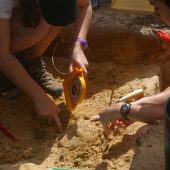
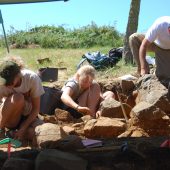
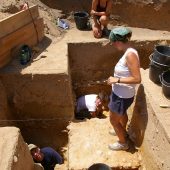
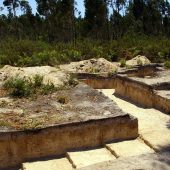
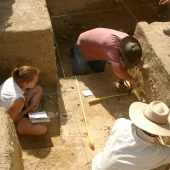
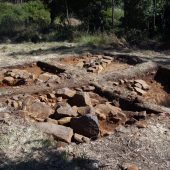
Since 1990 I have directed archaeological fieldwork to investigate Middle and Upper Paleolithic technology, settlement systems, raw material economies, and social organization in Portugal.
The discovery of significant sites at Vinhas and Vale Permego is helping us to understand Neanderthal raw material use and settlement strategies in open-air contexts, an important contrast to traditional cave and rockshelter archaeological records.
For three decades, I have directed extensive survey and excavation fieldwork at numerous Upper Paleolithic hunter-gatherer campsites in central Portugal near the town of Rio Maior. Olival Grande is the oldest of these open air archaeological sites with excavations yielding over 57,000 stone artifacts dating to between 32,000 and 25,000 years ago. The site of Espadanal, located in a low floodplain terrace, is one of the best dated, stratified open-air archaeological sites dating to the last to the late Pleistocene in Central Portugal. Large assemblages dating to the Gravettian and Magdalenian periods document changing technological organization and settlement strategies during the last ice age. Our research at Espadanal also has identified a late prehistoric plowzone capped by sediments with evidence of historic land use associated with the nearby coal mine. Over 100 m² of excavation area at the site of Vale de Obidos provide a high resolution picture of social organization during the last ice age with differentiated prehistoric activity areas including locations for weapons manufacturing, cooking with stone-boiling methods, pigment manufacturing, and hide preparation.
The late prehistoric archaeological site of Sao Martinho is a defensive settlement (or “Castro”) located on the summit of a large hill near Alcobertas, Portugal. Ground penetrating radar and other geophysical survey techniques preceded block excavation of the Castro deposits dating to the Late Bronze Age and the Iron Age. Important Medieval assemblages recovered from the site complement ongoing study of the nearby silo complex.
As Director of the Wake Forest University Archaeology Laboratory, I conduct a wide range of fieldwork and collections research in southeastern North America. In North Carolina, several Archaic campsites in Montgomery county have documented changing technological organization and resource use as prehistoric Native American communities faced environmental change. My students and I continue Wake Forest’s archaeological investigations along the Yadkin River including geoarchaeological investigations at the large Late Woodland village site of Donnaha.
Ethnoarchaeology Fieldwork
Since 1990, I have conducted ethnoarchaeological fieldwork to document the historic production of gunflints and strike-a-lights at the manufacturing center of Azinheira, Portugal. This research combines ethnographic interviews, archival document research, archaeological survey mapping, and lithic assemblage analysis to understand the chaîne opératoire of these frequently-overlooked stone tools.
Geoarchaeological Research
Archaeological research is inherently interdisciplinary and as a geoarchaeologist, I frequently apply geological methods to solve archaeological problems. For example, my students and I have conducted a wide range of geophysical surveys in archaeological and forensic contexts to identify buried deposits and design excavation strategies. Recent projects include magnetic gradiometry surveys at the historic sites of Bethabara, North Carolina and Abingdon, Virginia, gr ound penetrating radar surveys at historic cemeteries, and electrical resistivity surveys near historic Old Salem, North Carolina.
In collaboration with colleagues in chemistry and geology, my students and I integrate X-ray diffraction, X-ray fluorescence, magnetic, and petrographic studies of both clay and lithic raw material and archaeological artifact samples. One particularly good example of this interdisciplinary research is the Rio Maior – Azinheria Ridge chert resource project, a multi-year effort to comprehensively detail the geochemical and morphometric variability of the famous stone raw material source in central Portugal. My analytical work on understanding the iron mineralogy of sediments has facilitated archaeological site interpretation and environmental reconstruction in both Europe and North America.
Community-Based Archaeological Research Collaborations
Anthropological archaeology of relevance is not just about the past; it’s also about living people, communities, and the future. I have been fortunate to collaborate in significant community partnerships and community-based research projects including Community Archaeology of the Happy Hill neighborhood (Winston-Salem NC) and Heritage and Place in Sustainable Economic Development (Alcobertas, Portugal.) I assisted repatriation projects with the Caddo nation and the Eastern Band of the Cherokee. I continue to be interested in heritage and preservation ethics following my research into consecrated authenticities and heritage preservation dissonance in Post-Katrina New Orleans.
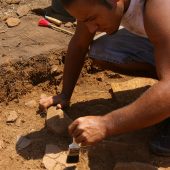
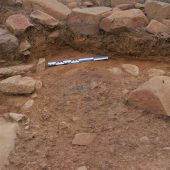
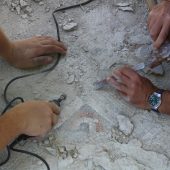
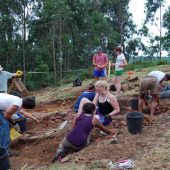
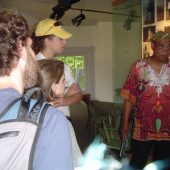
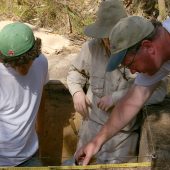
Many of the best ideas in archaeology emerge through collaboration. The fieldwork and laboratory analysis components of archaeological research are ideal for engaging undergraduate students in the process of discovering new knowledge.
My mentorship of student research in archaeology has been featured in Wake Forest Magazine and through broadcast media.
At Wake Forest, significant funding for undergraduate research opportunities is coordinated by the URECA Center (Undergraduate Research and Creative Activities). I have served as an Executive Committee member for the Center since 2008.
Student projects presented at academic conferences
Seven mentored student projects presented at the annual meeting of the Society for American Archaeology
One student project presented at the European Association of Archaeologists annual meeting
Ten student posters presented at the Southeastern Archaeological Conference
Competitive Funding for Student Research Proposals
Seven Richter Fellowships for International Undergraduate Research
Eleven Summer Undergraduate Research Fellowships
Three Carswell and Reynolds Student Research Fellowships
Faculty Research Mentor and Thesis Chair
Sixteen Undergraduate Honors Theses in Anthropology
Outside Reader or Thesis Committee Member
Two Ph.D., Two Masters, and four Undergraduate Theses for other universities or colleges

